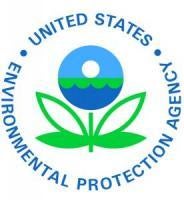The U.S. Environmental Protection Agency (EPA) and the U.S. Department of Justice (DOJ) announced today that Arch Coal Inc., one of the nation’s largest coal companies, and 14 of its subsidiaries under the International Coal Group Inc. (ICG) have agreed to conduct comprehensive upgrades to their operations to ensure compliance with the Clean Water Act. The settlement resolves hundreds of Clean Water Act violations related to illegal discharges of pollutants at the companies’ coal mines in Kentucky, Pennsylvania, Maryland, Virginia and West Virginia. The states of West Virginia, Virginia and Pennsylvania are co-plaintiffs in today’s settlement. The companies will also pay a $2 million civil penalty.
“Businesses have an obligation to ensure that their operations don’t threaten the communities they serve, especially those that are overburdened by or more vulnerable to pollution,” said Assistant Administrator Cynthia Giles for EPA’s Office of Enforcement and Compliance Assurance. “This settlement will prevent future environmental and public health risks by making sure these companies comply with federal and state clean water laws.”
“This joint enforcement effort, with three states, has resulted in a settlement that will require changes that will benefit the health and environment of Appalachian communities for many years to come,” said Assistant Attorney General John C. Cruden for the Environment and Natural Resources Division. “Under the terms of the agreement, Arch Coal and its subsidiaries will pay a significant penalty, improve their pollution control systems and provide for independent monitoring and data tracking that will make it a better company and a better neighbor to these communities.”
In addition to paying the penalty, under the proposed consent decree the companies must implement measures to ensure compliance and prevent future Clean Water Act violations, which will help protect communities overburdened by pollution, including:
* Developing and implementing a compliance management system.
* Periodic internal and third-party environmental compliance audits.
* Maintaining a data management system to track violations, water sampling data and compliance efforts.
* Providing training for environmental managers and others responsible for the consent decree.
* Paying escalating stipulated penalties if violations continue to occur.
The government complaint filed concurrently with the settlement alleged that in the last six years, ICG operations have violated discharge limits for aluminum, manganese, iron and total suspended solids in their state-issued National Pollution Discharge Elimination System permits on more than 1,200 occasions, resulting in over 8,900 days of violations. Of those violations, 700 have been previously resolved by state enforcement actions in Kentucky and West Virginia.
EPA discovered the violations through inspections of ICG facilities and projects, reviewing various information provided by the companies and coordinating with the affected state governments.
The proposed consent decree, lodged in the U.S. District Court for the Southern District of West Virginia, is subject to a 30-day public comment period and approval by the federal court.
For more information on this settlement and to read the consent decree, go to:
http://www2.epa.gov/enforcement/arch-coal-inc-and-international-coal-group-subsidiaries-settlement




 />i
/>i

